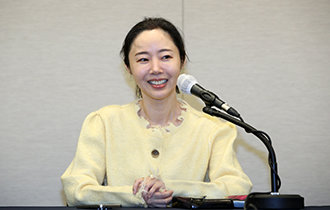Natural Gas Demand Exceeding Supply
Natural Gas Demand Exceeding Supply
Posted November. 03, 2006 03:01,
Korea is expected to suffer serious natural gas shortages until 2017.
According to the Outlook of Natural Gas Demands of the Korea Gas Corporation (KGC) this paper acquired on November 2, domestic demand for natural gas will go up an average 4.9% annually from 26.75 million tons in 2007 to 38.81 million tons in 2017.
Given the natural gas Korea has secured so far, Korea will lack a total of 144.33 million tons of gas until 2017, an equal amount that the country will consume for the next six years, considering that it used around 22.85 million tons last year.
The KGC recently reported the outlook to the Ministry of Commerce, Industry and Energy (MOCIE), and the government will announce the 8th plan for long-term natural gas supply and demand based on the outlook next month. The government releases long-term plans for natural gas once every two years.
The shortages were caused by surging demand for power generation -
The concern for a lack of natural gas supply was already suggested in the 7th plan published in December, 2004.
At the moment, the government expected that although it should secure an additional 62.06 million tons by 2017 to meet the natural gas demand increase of an average 3.93% a year, the rising demand would not cause any problem as the government can secure 105.73 million tons more after negotiation with the supplier.
The KGCs outlook shows, however, that the country will lack 38.60 million tons of gas by 2017 or from 670,000 to 7,530,000 tons a year even if the government obtains more from the supplier.
For more precise estimate, the Corporation worked with the Econometrics Center of Sungkyunkwan University. And the result showed that demand for power generation will rise sharply, with a big change in the outlook for demand from two years ago.
The government forecast in its 2004 plan that the demand for power generation would peak in 2007, rising only an annual 0.32% by 2017. But the KGCs recent report projected a 4.48% increase a year.
The Corporation expected that natural gas would replace oil in power generation due to high oil prices, and, in the long term, coal and nuclear power plants construction will be delayed.
Shortages in supply are not my fault -
There would be no problem in meeting the increasing demand if only the government can secure enough supply. Unfortunately, it failed to do so and is facing criticism.
Around 80% to 90% of the total natural gas is supplied through long-term contracts, from 20 to 30 years. But the KGC did not make a long-term contract from 1999 to 2004.
Regarding that, it said the reason was the restructuring project of the gas industry conducted by the government from 1999. The plan is aimed at allowing private gas companies to participate in the supplying by privatizing the KGC and adopting a competing system.
An anonymous official in the Corporation said, For private gas suppliers to join in the industry, they should secure natural gas. That is why the government banned the KGC from long-term contracts as there would be no gas left when the Corporation makes long-term contracts.
The governments 6th plan in 2002 also forecast the long-term gas supply would not meet the demand from 2003. But long-term contracts were made as late as 2005.
But the Ministry says exactly the opposite.
An official of the MOCIE said, The KGC itself did not make long-term contract as it was concerned about governments pressure to adopt the competing system swiftly when the supply is left over.
Gas shortages are a global trend
Experts say that Korea cannot meet the natural gas demand, considering the situation in the world.
Gas consumption is skyrocketing as China began to import natural gas from this year and the U.S. uses more gas for the environment. The oil price hikes are one of the reasons of the increasing gas demand.
However, most of the natural gas supply generated in the Middle East goes to Europe and the U.S., and Indonesia decreases the production, on which Korea has been heavily dependent.
Han Won-hee, a researcher in the KGC, said that the restructuring project makes it difficult for the Corporation to buy enough gas, and pointed out that Korea should take such measures as actively participating in natural gas development projects overseas like Japan.
smhong@donga.com sublime@donga.com







